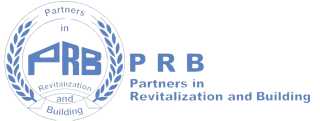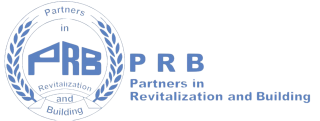Our History
The Establishment – 1990
Partners in Revitalization and Building (formerly Pamir Reconstruction Bureau), PRB, a non -governmental organization was established in July 1990 by a group of Afghan experts headed by Eng. Kabir Hakim. PRB since its inception supported sustainable economic and social recovery in its area of operation. Also PRB committed to peace building stability in Afghanistan by improving the basic living conditions for the people of rural and urban parts of the country.
The organization is committed in restoration of peace, security and good governance in Afghanistan. It supports and facilities the efforts of the people of Afghanistan to rebuild their country and attain and realize their basic human rights irrespective of religion, ethnicity, group, party affiliation, creed and gender.
Years 1991-92 were the years of building of capacities and institution establishment. During these years’ attention had been focused to accomplish a very decent working relation with community, authorities and other involved in the field. The capacity building program latter on became a principle component in all PRB activities. Now-a-days about 179 staff are employed in different offices and projects. Their skills are crucial for the continuity and sustainability of PRB activities.
A proper work-plan with the reflection of the community needs had been prepared and executed in each year of its activities. The work-plan had the inspiration of donor’s agencies. In 1995-96 when factional fighting fueled by the neighboring countries and chaos griped all Afghanistan especially after the fall of Kabul in the hand of Taliban, the aids for Afghanistan got squeezed to minimal. PRB conducted a comprehensive survey of need assessments from its areas of operation. As a result a work plan (1997-99) had been chalked-out by the program section and endorsed by PRB management team and general assembly.
The 1997-99-work plan had three important features:
- Involvement of the community in projects planning, implementation, management and ownership.
- Moving from project-wise to program-wise with integrated approach. The program received an encouraging support from both the community and donors. In the three years’ program number of reconstruction income generation and agricultural activities had been approved and executed by program section of PRB.
Based on the guidance of the work plan PRB was able to receive grants for execution of some vital sustainable projects including: Kabul Milk scheme, bee keeping, sericulture, carpet weaving, embroidery, tailoring, leather works, knitting, jewelry, flower making, poultry raising, Patu Making ,carpentry training, computer training and English language courses. These projects were mainly for women and girls in different parts of the country.
Kabul Milk scheme was a successful achievement to enhance the livelihood of the farmers around Kabul and provides hygienic milk products to Kabul residents. The scheme was established during most difficult period and with meagre resources. The scheme became an example for other organizations and firms to establish and operate diary plants in other parts of the country.
PRB feels the vulnerability menace is the inheritance of decades of war and conflicts. It can be reduced by the community empowerment Also with the peace- building concepts, the community will be better equipped to undertake social and economic rehabilitation in the spirit of unity cooperation and national integration. PRB always tried to design its program in such a way to reduce poverty and enhance the empowerment among the beneficiaries of its targeted areas.
Expansion and Strategic Planning (2000-2010)
The three years’ work plan of PRB received an encouraging support from donors and community. The lessons learned from successful completion of three-year work plan (1997-1999) bound PRB leadership to prepare a five years’ strategic work plan for year 2000-2004. The strategic work plan for the years 2000 to 2004 is the continuation of previous work plan (1997-1999) in more comprehensive manner.in the early 2000s, PRB Partners in Revitalization and Building undertook a significant expansion of its initiatives through the development of a comprehensive five-year strategic work plan This strategic plan was crafted to delineate the organization’s goals, objectives, and strategies for the upcoming years, offering a roadmap for its operations and activities. By laying out a detailed plan covering five years, PRB showcased its dedication to long-term planning and vision, ensuring that its endeavors were strategically aligned to achieve maximum impact in the realm of population research and advocacy.
During this period, PRB likely concentrated on various key areas such as human resource development through seminars, workshops, and training programs, empowering communities, civil society, and local government, with a particular focus on women’s empowerment initiatives. In addition to be emphasized more on agricultural and livelihood programs in rural setting. Through the formulation of this strategic work plan, PRB was able to prioritize its projects, allocate resources efficiently, and monitor progress towards its objectives effectively. This proactive approach enabled PRB to enhance its effectiveness, engage stakeholders more strategically, and leave a lasting impact on global population issues.
- The creation of this comprehensive strategic plan represented a pivotal moment in PRB’s history, shaping its trajectory and influence in the years that followed.
- Diversification of Initiatives(rural rehabilitation projects): The organization expanded its initiatives to encompass veterinary training, women’s job creation, livestock extension, community development, and infrastructure projects. This diversification demonstrates PRB’s dedication to addressing a broad spectrum of community needs to reduce poverty.
- Focus on Agriculture and Livelihood Enhancement: PRB placed a strong emphasis on agriculture, vocational training, and infrastructure development to address poverty and empower communities.
Continued Impact and Evolution (2010-Present)
The transformation in Afghanistan post-2000 brought about significant shifts impacting the lives of its people. Every community was affected by severe drought, and the resettlement of over a million Internally Displaced Persons and more than three million refugees took place. PRB, the organization, played a vital role by offering emergency aid and generating job opportunities for hundreds of thousands of unskilled workers through construction, reconstruction, and emergency employment schemes such as food and cash-for-work programs. These initiatives not only provided employment but also helped enhance law and order and stability in the country. Moreover, PRB constructed numerous schools and animal health clinics( VFUs) buildings and road to assist in revitalizing the education infrastructure and supporting rural farmers.
Since 2003, efforts to rebuild the nation commenced, yet the operational capacity of the newly established government was insufficient to extend basic services, particularly to rural regions. In recent years, notably since 2021, PRB encountered challenges like economic downturns, floods, earthquakes, chronic droughts, and a deteriorating humanitarian situation for the Afghan populace. Despite facing obstacles such as project halts, financial crises, workforce reductions, and downsizing, the organization persevered by prioritizing the delivery of high-quality services. Key focuses included promoting transparency, accountability, enhancing record-keeping and service tracking systems, implementing immediate response mechanisms, and employing responsive monitoring and evaluation strategies.
Looking forward, the organization is dedicated to providing humanitarian, developmental, and peace building guided by a new Strategic Plan. Operating in sectors like agriculture, livestock, education, income generating , disaster management, among others, PRB aims to honor and safeguard the cultural identities of those it serves. By establishing meaningful connections with individuals that acknowledge their cultural heritage and priorities, PRB believes its success hinges on understanding what holds the most significance for the communities it supports.
Sustained Commitment: PRB has continued to demonstrate a sustained commitment to its core initiatives in agriculture, livestock, capacity building, and community empowerment gender equality, women right for work and education.
Diversified Services: In addition to its core initiatives, PRB has expanded its services to include consultancy and engineering services to support sustainable development efforts.
Commitment to Community Empowerment: Throughout its history, PRB has remained dedicated to peace-building, poverty reduction, and national integration. The organization’s focus on community empowerment has been a consistent theme in its work.



